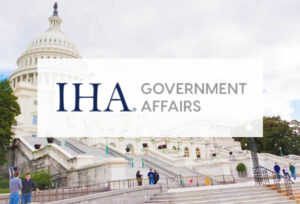On Feb. 26, 2024, the Federal Maritime Commission (FMC) published the final rule “Demurrage and Detention Billing Requirements.” Most of the rule went into effect on May 28 and the catalyst was the Ocean Shipping Reform Act (OSRA) of 2022, which IHA lobbied for to authorize regulations making demurrage and detention billing timelier and more transparent. As explained in the…
CONTINUE READING
Government Affairs & Legal
IHA has collected a variety of resources to help members stay on top of current legal and technology issues.The CRA and New Regulations
Concerns among Democrats in Washington, D.C. that Republicans could win the White House in November has caused Biden Administration officials to accelerate their regulatory agenda. This is driven by their fears that a Republican White House and Congress will use the Congressional Review Act (CRA) to repeal many new regulations if they aren’t finalized by the spring or summer of…
CONTINUE READINGLacey Act Reporting Requirements
In 1900, Congressman John Lacey sponsored legislation to curb the importation of exotic bird feathers. Lacey Act amendments up to 2008 expanded coverage to fish and animals and established individual and corporate responsibility. The 2008 Farm Bill added wood and plant products, making it unlawful to “import, export, transport, sell, receive, acquire, or purchase in interstate…
CONTINUE READINGState Recycled Content Laws
Laws requiring certain percentages of post-consumer resin content in plastic packaging are gaining traction in some states. According to the Association of Plastics Recyclers (APR), by late 2023, seven states were in various stages of implementing such laws, with existing laws in CA, ME, WA and NJ, and a new law in CT and proposed laws in MD and NY. State laws in effect…
CONTINUE READINGCongress Begins Moving a Bipartisan Tax Bill
On January 17, Senate Finance Committee Chairman Ron Wyden (D-OR) and House Ways and Means Committee Chairman Jason Smith (R-MO) announced bipartisan, bicameral tax legislation, the Tax Relief for American Families and Workers Act of 2024 (TRAFA). To summarize, TRAFA would extend three business tax breaks from 2017’s Tax Cuts and Jobs Act and expand the child tax credit, with…
CONTINUE READINGIHA Government Affairs Achievements
IHA has had a number of government affairs achievements in the last four years with some of the more notable victories discussed below. New UPU Agreement: The housewares industry realized a victory when the Universal Postal Union (UPU) agreed to revise international postal rates to stop discriminating against U.S. shippers. Founded in 1875, the UPU sets postal rates among…
CONTINUE READINGADA Website Lawsuit Developments
The Americans with Disabilities Act (ADA) became law in 1990 and its primary focus is Title III, which concerns accessibility for those with disabilities in public accommodations and commercial “brick and mortar” facilities. But the ensuing arrival of the internet and its new platform for selling products was seized upon by trial lawyers as a “target rich environment” for ADA…
CONTINUE READINGNew Workforce Regulations for Employers
Three workforce regulations from the National Labor Relations Board (NLRB) and Occupational Safety and Health Administration (OSHA) could have a big impact on IHA members and employers across the country. All of them are controversial and could be challenged in court by business organizations. On Oct. 27, the NLRB published a final rule addressing the Standard for…
CONTINUE READINGRenew the GSP Program and Refund Duties
The Generalized System of Preferences (GSP) program was created to encourage economic development for emerging economies in qualifying countries by reducing tariff burdens on U.S. companies to encourage investment and partnerships in those places. The program has been regularly renewed but lapsed in 2021 and Congress has not been able to reach an agreement on renewal for a…
CONTINUE READING- « Previous Page
- 1
- 2
- 3
- 4
- 5
- …
- 10
- Next Page »



